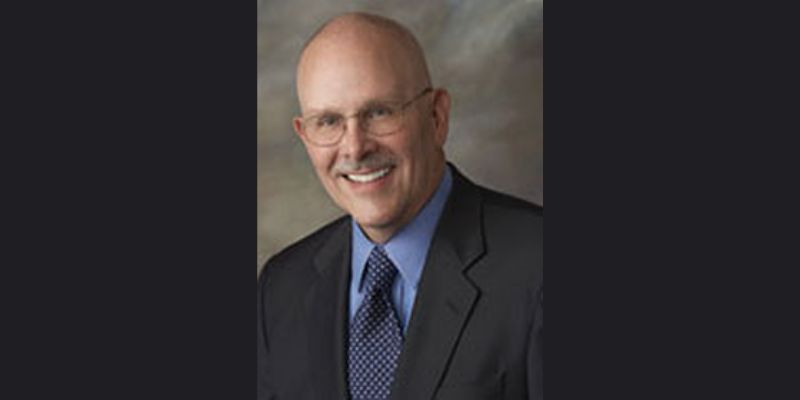Clayton Alderfer biografie en theorie

Clayton Alderfer ABPP (1940) is een Amerikaanse psycholoog, spreker, schrijver, ondernemer, consultant en wetenschapper. Clayton Alderfer is vooral bekend geworden met zijn ERG theorie. Zijn vertrekpunt voor de ontwikkeling van deze theorie was de behoeftepiramide van Maslow, die hij op basis van empirisch onderzoek (1966-1989) verder heeft ontwikkeld naar de ERG theorie.
Biografie Clayton Alderfer
In 1962 behaalde Clayton Alderfer zijn Bachelor graad (BSc.) cum laude aan de Universiteit van Yale in de Verenigde Staten. In 1966 promoveerde hij en behaalde hij zijn doctoraat (Ph.D.) tevens aan de Universiteit van Yale. In 1975 ontving Alderfer een diploma voor psychologie (vakgebied: organisatieadvies) die werd uitgereikt door de ‘American Board of Professional Psychology (ABPP)’.
Na zijn studie en promotie ging Clayton Alderfer kort aan de slag bij de Universiteit van Cornell (1966-1968). Daarna verbond hij zich als faculteitslid 24 jaar (1968-1992) aan de universiteit van Yale in de rol van docent, onderzoeker en programma directeur.
In deze jaren deed hij psyhologisch empirisch onderzoek naar de drie menselijke behoeften, te weten: Existence Needs, Relatedness Needs en Growth Needs. De ontwikkelde ERG theorie van Clayton Alderfer was baanbrekend en is tot op de dag van vandaag nog terug te vinden in vele managementboeken.
Na 1992 verbond Alderfer zich aan de Rutgers, een Universiteit in New Jersey in de Verenigde Staten. Twaalf jaar was hij daar directeur van het onderdeel professionele studies en heeft daar het faculteitsprogramma op een hoger niveau weten te brengen.
Alderfer merkte uiteindelijk dat het werken in de praktijk als consultant toch interessanter was en startte zijn eigen organisatie adviesbureau Alderfer and Associates. Deze organisatie bestaat nog steeds en levert diagnose- en adviesdiensten aan organisaties binnen de publieke, private en non-profit sectoren.
Bekende publicaties en boeken
- 2010. The practice of organizational diagnosis: Theory and methods. Oxford University Press.
- 2005. The Five Laws of Group and Intergroup Dynamics.
- 2003. Diversity in organizations. Comprehensive Handbook of Psychology, Vol. 12: Industrial & Organizational Psychology (pp. 287-293). New York, NY: Wiley.
- 2002. Diversity in organizations. Handbook of psychology.
- 2002. An empirical study of parallel processes during organic questionnaire administration. Journal of Applied Behavioral Science, 38, 416-435.
- 1997. Embedded intergroup relations and racial identity development theory. Racial identity theory: Applications to individual, group, and organization interventions, 237-263.
- 1994. A white man’s perspective on the unconscious processes within black–white relations in the United States.
- 1992. The race relations competence workshop: Theory and results. Human Relations, 45(12), 1259-1291.
- 1992. Changing race relations embedded in organizations: Report on a long-term project with the XYZ Corporation.
- 1989. Theories Reflecting My Personal Experience and Life Development. The Journal of Applied Behavioral Science, 25(4), 351-365.
- 1988. Teaching personality & leadership. Organizational Behavior Teaching Review, 12, 12-33.
- 1988. Understanding & consulting to family business boards. Family Business Review, 1, 249-261.
- 1988. The significance of race and ethnicity for understanding organizational behavior.
- 1987. An Intergroup Perspective on Group Dynamics. Handbook of Organizational Behavior, 190-222.
- 1986. The invisible director on corporate boards. Harvard Business Review, 64, 38-52.
- 1983. Black and White cognitions of changing race relations in management. Journal of Occupational Behaviour.
- 1982. Studying intergroup relations embedded in organizations. Administrative Science Quarterly, 35-65.
- 1982. Problems of changing white males’ behavior and beliefs concerning race relations. Change in organizations, 122, 165.
- 1980. Diagnosing race relations in management. Journal of Applied Behavioral Science, 16, 135-166.
- 1980. The methodology of organizational diagnosis. Professional Psychology, 11(3), 459.
- 1980. Consulting to underbounded systems. Advances in experiential social processes, 2, 267-295.
- 1980. Advances in experiential social processes (Vol. 2). John Wiley and Sons.
- 1979. Life experiences and adults’ enduring strength of desires in organizations. Administrative Science Quarterly, 347-361.
- 1978. Advances in Experiential Social Processes. John Wiley & Sons Ltd.
- 1977. Improving organizational communication through long-term intergroup intervention. Journal of Applied Behavioral Science, 13, 193-210.
- 1977. Organization development. Annual review of psychology, 28(1), 197-223.
- 1977. Group and intergroup relations. Improving the quality of work life, 227, 296.
- 1977. A critique of Salancik and Pfeffer’s examination of need-satisfaction theories. Administrative Science Quarterly, 658-669.
- 1976. Boundary relations and organizational diagnosis. Humanizing organizational behavior, 142, 175.
- 1975. Learning from changing: Organizational diagnosis and development. Sage Publications.
- 1974. The effect of variations in relatedness need satisfaction on relatedness desires. Administrative Science Quarterly, 507-532.
- 1973. The Relevance of Human Intellect and Organizational Power for Organizational Development. PN.
- 1973. Three studies of measures of need satisfaction in organizations. Administrative Science Quarterly, 489-505.
- 1973. The tensions between research and intervention in intergroup conflict. The Journal of Applied Behavioral Science, 9(4), 424-449.
- 1973. A New Design for Survey Feedback. PN.
- 1972. Designing an” empathic questionnaire” for organizational research. Journal of Applied Psychology, 56(6), 456.
- 1972. Existence, relatedness, and growth: Human needs in organizational settings. New York, NY.
- 1972. Understanding the impact of survey feedback. The Social Technology of Organization Development. Fairfax, Virginia: NTL Learning Resources Corp, 234-243.
- 1971. Change processes in organizations. YALE UNIV NEW HAVEN CONN DEPT OF ADMINISTRATIVE SCIENCES.
- 1971. Effect of individual, group, and intergroup relations on attitudes toward a management development program. Journal of Applied Psychology, 55(4), 302.
- 1971. A quasi experiment on the use of experiential methods in the classroom. The Journal of applied behavioral science, 7(1), 43-69.
- 1970. Personal and situational factors in the recruitment interview. Journal of Applied Psychology, 54(4), 377.
- 1970. Choices with risk: Beyond the mean and variance. Journal of Business, 341-353.
- 1969. An empirical test of a new theory of human needs. Organizational behavior and human performance, 4(2), 142-175.
- 1968. Comparison of questionnaire responses with and without preceding interviews. Journal of Applied Psychology, 52(4), 335.
- 1967. An organizational syndrome. Administrative Science Quarterly, 440-460.
- 1967. Convergent and discriminant validation of satisfaction and desire measures by interviews and questionnaires. Journal of Applied Psychology, 51(6), 509.
Citatie voor dit artikel:
Van Vliet, V. (2013). Clayton Alderfer. Retrieved [insert date] from Toolshero: https://www.toolshero.nl/bekende-auteurs/clayton-alderfer/
Gepubliceerd op: 17/11/2013 | Laatste update: 23/03/2023
Wilt u linken naar dit artikel, dat kan!
<a href=”https://www.toolshero.nl/bekende-auteurs/clayton-alderfer/”>Toolshero: Clayton Alderfer</a>












